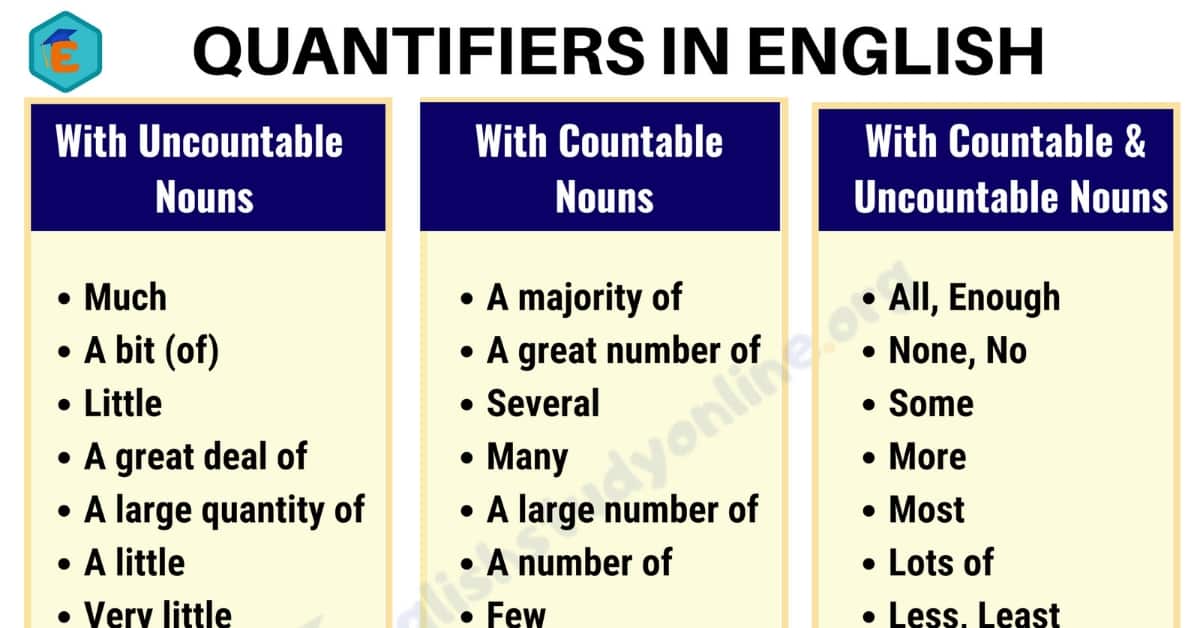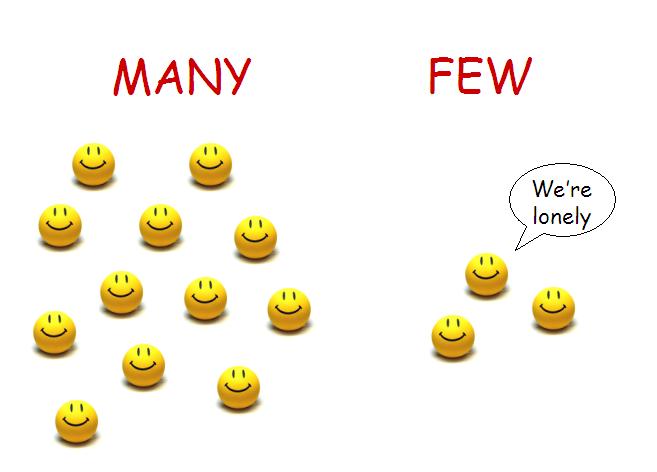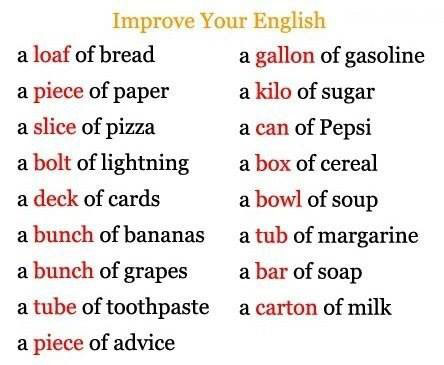∴
A →quantifier ← is a type of determiner, such as all or many, that indicates quantity.
These items have been argued to correspond to logical quantifiers at the semantic level.
Some Notes on Quantifiers ⇓ [http://grammar.ccc.commnet.edu]
Like articles, quantifiers are words that precede and modify nouns. They tell us how many or how much. Selecting the correct quantifier depends on your understanding the distinction between Count and Non-Count Nouns. For our purposes, we will choose the plural noun ‘trees’ and the non-count noun ‘wood’:
![]() The following quantifiers will work with count nouns:
The following quantifiers will work with count nouns:
many trees
a large number of trees
a few trees
few(er) trees
several trees
a couple of trees
none of the trees![]() The following quantifiers will work with non-count nouns:
The following quantifiers will work with non-count nouns:
not much wood
a little wood
little wood
a bit of wood
a good/great deal of wood
a large amount of wood
![]() The following quantifiers will work with both count and non-count nouns:
The following quantifiers will work with both count and non-count nouns:
all (of the) trees/wood
most of the trees/wood
a lot/ lots of trees/wood
plenty of trees/wood
enough trees/wood
more trees/wood
some trees / wood
a lack of trees/wood
no trees/wood
not any trees/wood

In formal academic writing, it is usually better to use many and much rather than phrases such as a lot of, lots of and plenty of.
There is an important difference between «a little» and «little» (used with non-count words) and between «a few» and «few» (used with count words). If I say that Tashonda has a little experience in management that means that although Tashonda is no great expert she does have some experience and that experience might well be enough for our purposes. If I say that Tashonda has little experience in management that means that she doesn’t have enough experience. If I say that Charlie owns a few books on Latin American literature that means that he has some some books — not a lot of books, but probably enough for our purposes. If I say that Charlie owns few books on Latin American literature, that means he doesn’t have enough for our purposes and we’d better go to the library.
Unless it is combined with of, the quantifier «much» is reserved for questions and negative statements:
- Much of the snow has already melted.
- How much snow fell yesterday?
- Not much.
Note that the quantifier «most of the« must include the definite article the when it modifies a specific noun, whether it’s a count or a non-count noun: «most of the instructors at this college have a doctorate»; «most of the water has evaporated.»
With a general plural noun, however (when you are not referring to a specific entity), the «of the» is dropped:
- Most colleges have their own admissions policy.
- Most students apply to several colleges.
An indefinite article is sometimes used in conjunction with the quantifier many, thus joining a plural quantifier with a singular noun (which then takes a singular verb):
- Many a young man has fallen in love with her golden hair.
This construction lends itself to a somewhat literary or archaic effect.
• Loads of exercises on quantifiers … →[o1]← / →[o2]← / →[o3]← / →[o4]←
• Determiners & quantifiers: →[o1]← / →[o2]← / →[o3] ⇔ [quiz]←
◊ . . . OF . . . ↓
⇑ Countable & Uncountable nouns
•→ Names for 0 & other numbers ⇐
⇐ Ways of saying 0





Deja un comentario